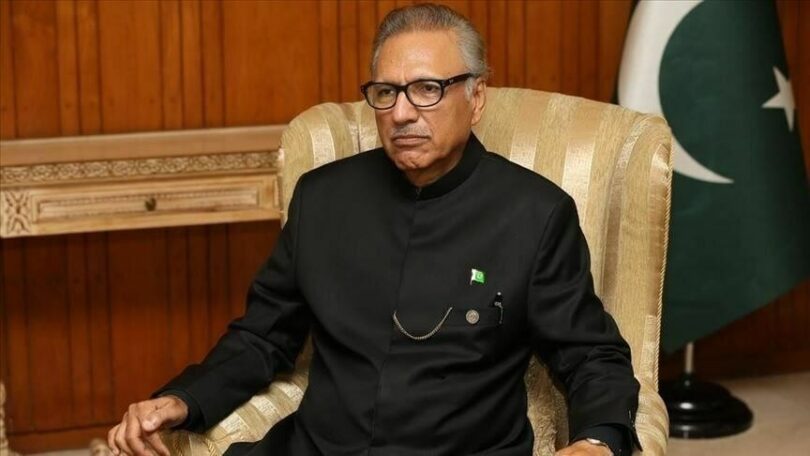F.P. Report
ISLAMABAD: President Dr Arif Alvi on Thursday shared his 10 best reads of 2023 encompassing varying subjects including politics, history, Sufism, artificial intelligence and astronomy while giving his intellectual analysis in the perspectives of the modern-day world.
The President, in a detailed video message, shared that the aim of his extensive study was motivated by his quest for exploration into Allah’s universe, Sufism, democracy, Pakistan, his passion for artificial intelligence and global peace and development. The president recommended the people to read “Economic Origins of Dictatorship and Democracy” written by Daron Acemoglu and James A. Robinson which gave a mathematical analysis of the revival of democracies in the world either consequent to any struggle or accidents.
It outlines the arduous journey of reclaiming people’s rights from dictators, spanning centuries of struggle as well as the resistance of the elite towards democracy. The book “Democracy and Islam in History” by SM Zafar delves into the democratic processes observed during the election of the four caliphs and how they established democratic and judicial institutions. It highlights the evolution and significance of consultative practices in Islamic history.
The book references a letter by Hazrat Umar (RA), advising one of his judges to maintain accessibility to the masses, facilitate litigants, ensure the enforcement of decisions, and revise judgments if deemed against the spirit of justice. President Alvi also emphasized that while hearing the representations against the Ombudsmen’s decisions, he kept special care of the impoverished litigants and those from remote regions.
“The Impossible State: Islam, Politics, and Modernity’s Moral Predicament” by Wael B. Hallaq explores the historical evolution of legislative processes in Islamic history. It highlights that during the caliphates, rulers didn’t enact laws rather, Muftis interpreted them based on the Quran, Sunnah, and past precedents. President Alvi outlined the five fundamental principles of an Islamic state: protecting life and property, ensuring freedom of thought and religion for all, and fostering a free society.
The President also recommended Elif Shafak’s “The Forty Rules of Love: On Mawlana Rumi and Shams Tabraizi,” which explores Sufism and the profound friendship between Rumi and Tabraizi. Describing the Holy Quran as a guiding light for humanity, Rumi offered a distinctive perspective on love: “love yourself, love your family, love your neighbors, love your nation, love humanity, love everything created by Allah, love your prophet, and love Allah,” encouraging people to begin their journey of love from the most immediate to the divine.
Among the president’s top reads was also “The God Equation: The Quest for a Theory of Everything” by Michio Kaku, which charts the evolution of our understanding of the universe over time, from the Aristotelian concept of four elemental components-earth, water, fire, and air-to modern scientific discoveries such as magnetic fields, radio waves, atoms, and nuclei. It tells that the universe visible to humans constitutes just 5% of its total size, with dark matter comprising 26% and dark energy 70%.
The President endorsed “On The Origin of Time” by Thomas Hertog, a student of Stephen Hawking, which delves into the anthropic principle of the universe’s creation. The book supports the Quranic concept that Allah crafted the universe for humanity and out of love for the Holy Prophet. Quoting Stephen Hawking, the president mentioned that while we currently perceive three to four dimensions, there exist an additional 10 dimensions and parallel universes inhabited by diverse, undiscovered beings.
The President also studied “Scary Smart: The Future of Artificial Intelligence and How You Can Save Our World” by Mo Gawdat which deliberated on the world’s increasing fear of artificial intelligence. The writer argues against the human expectations of controlling AI, claiming that by 2040-50, AI will be one billion times more powerful than humans.







